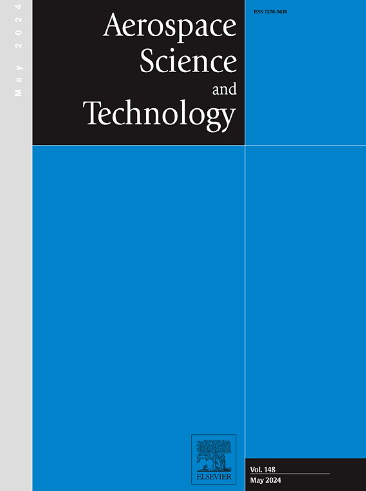Aerodynamic shape optimization via active learning-driven design space refinement
IF 5.8
1区 工程技术
Q1 ENGINEERING, AEROSPACE
引用次数: 0
Abstract
In Aerodynamic Shape Optimization (ASO) studies, the ranges of design variables critically influence both optimization efficiency and solution quality. Traditional approaches typically maintain fixed boundaries based on experiential knowledge, struggling to balance computational efficiency with optimization outcomes. This paper proposes an innovative design space refinement framework driven by active learning. This framework offers a flexible and efficient strategy to identify a compact design space encompassing high-performance designs. Active learning enhances sampling efficiency, while the refinement mechanism progressively directs the optimization focus toward higher-performing designs. The proposed framework is validated through a comparative analysis with Principal Components Analysis (PCA), a prevalent method for reducing the number of design variables, on supercritical airfoil optimization. The results demonstrate that dynamically refining the boundaries of design variables can significantly improve the efficiency and effectiveness of ASO. By integrating active learning with adaptive design space refinement, the proposed approach effectively focuses the optimization process on regions likely to contain superior designs.
气动形状优化通过主动学习驱动的设计空间细化
在气动形状优化(ASO)研究中,设计变量的取值范围对优化效率和求解质量都有重要影响。传统方法通常基于经验知识维持固定的边界,努力平衡计算效率和优化结果。本文提出了一种基于主动学习的创新设计空间细化框架。该框架提供了一种灵活而有效的策略来确定包含高性能设计的紧凑设计空间。主动学习提高了采样效率,而细化机制则逐步将优化重点转向更高性能的设计。通过与主成分分析(PCA)(一种减少设计变量数量的流行方法)在超临界翼型优化上的比较分析,验证了所提出的框架。结果表明,动态细化设计变量边界可以显著提高ASO的效率和有效性。通过将主动学习与自适应设计空间改进相结合,该方法有效地将优化过程集中在可能包含优秀设计的区域。
本文章由计算机程序翻译,如有差异,请以英文原文为准。
求助全文
约1分钟内获得全文
求助全文
来源期刊

Aerospace Science and Technology
工程技术-工程:宇航
CiteScore
10.30
自引率
28.60%
发文量
654
审稿时长
54 days
期刊介绍:
Aerospace Science and Technology publishes articles of outstanding scientific quality. Each article is reviewed by two referees. The journal welcomes papers from a wide range of countries. This journal publishes original papers, review articles and short communications related to all fields of aerospace research, fundamental and applied, potential applications of which are clearly related to:
• The design and the manufacture of aircraft, helicopters, missiles, launchers and satellites
• The control of their environment
• The study of various systems they are involved in, as supports or as targets.
Authors are invited to submit papers on new advances in the following topics to aerospace applications:
• Fluid dynamics
• Energetics and propulsion
• Materials and structures
• Flight mechanics
• Navigation, guidance and control
• Acoustics
• Optics
• Electromagnetism and radar
• Signal and image processing
• Information processing
• Data fusion
• Decision aid
• Human behaviour
• Robotics and intelligent systems
• Complex system engineering.
Etc.
 求助内容:
求助内容: 应助结果提醒方式:
应助结果提醒方式:


